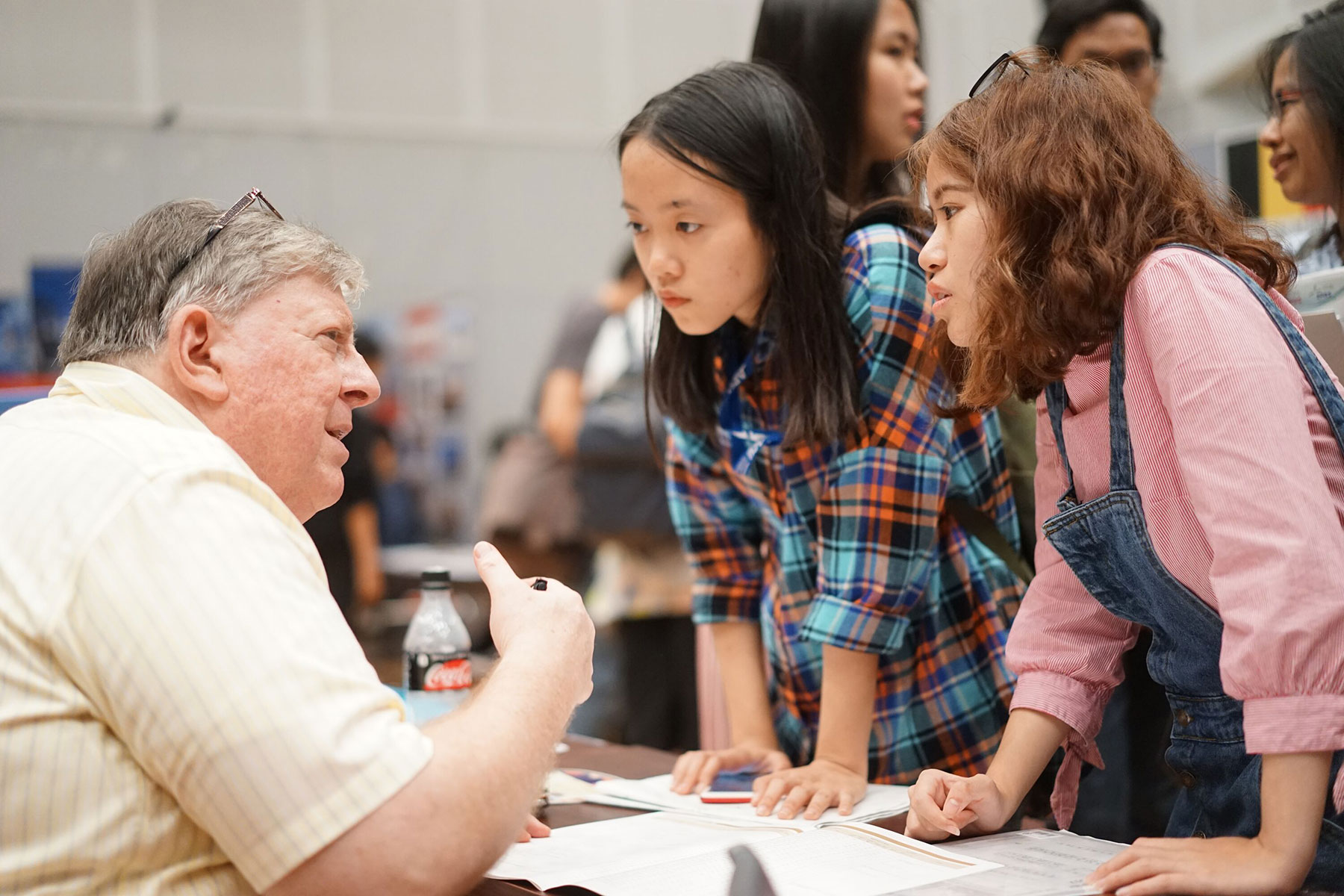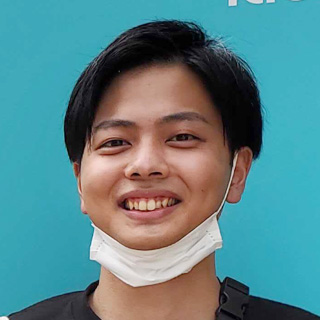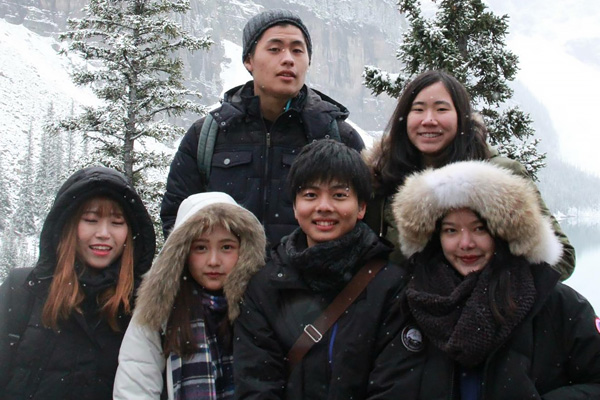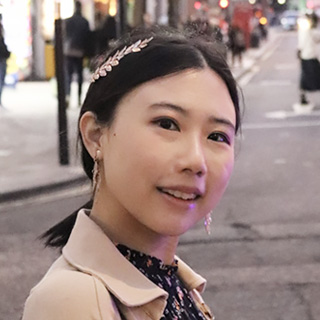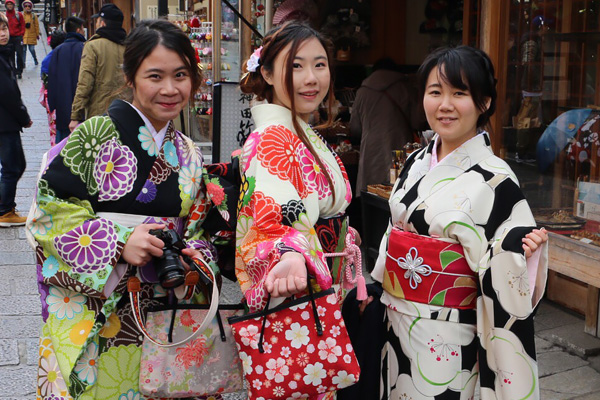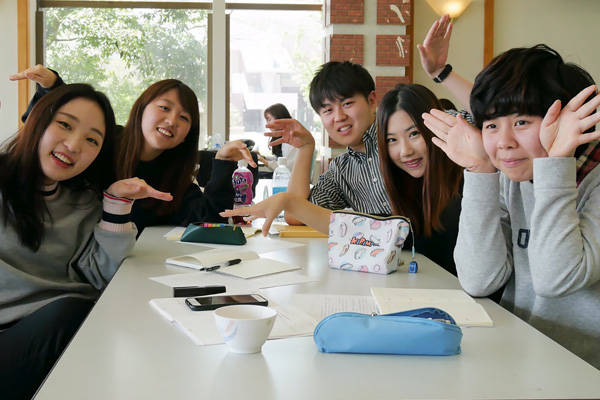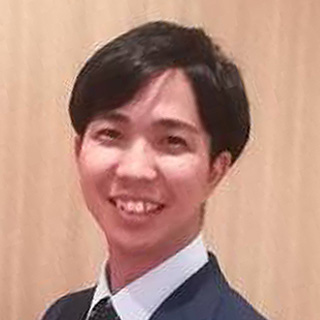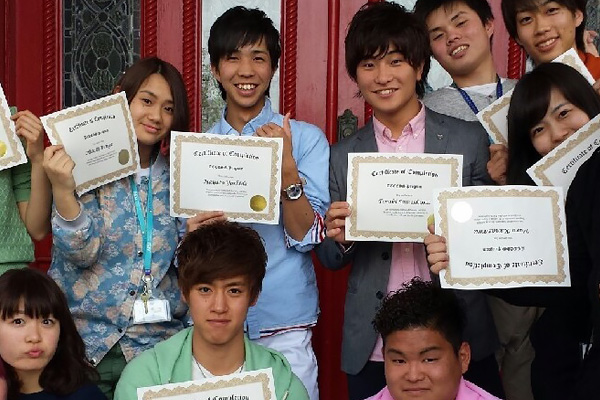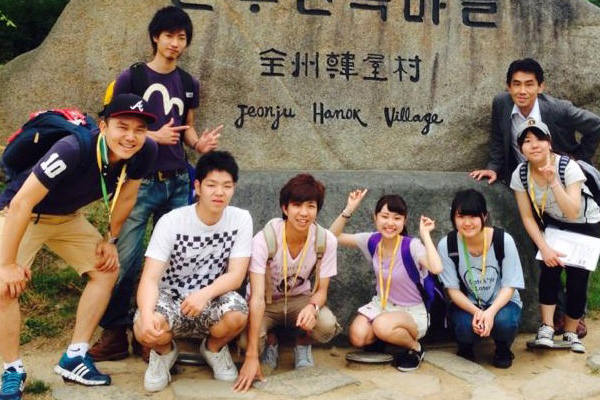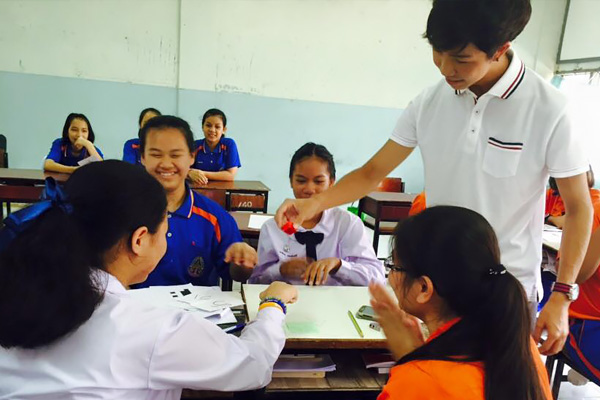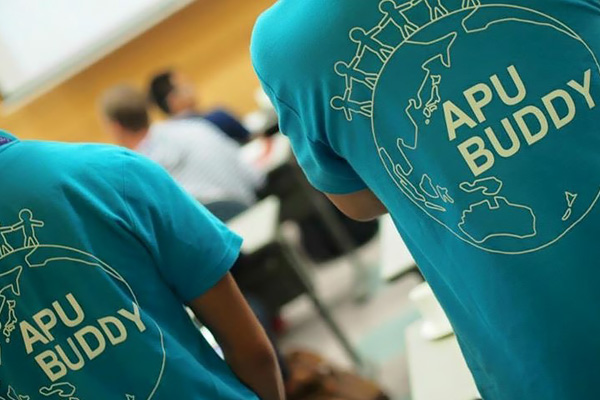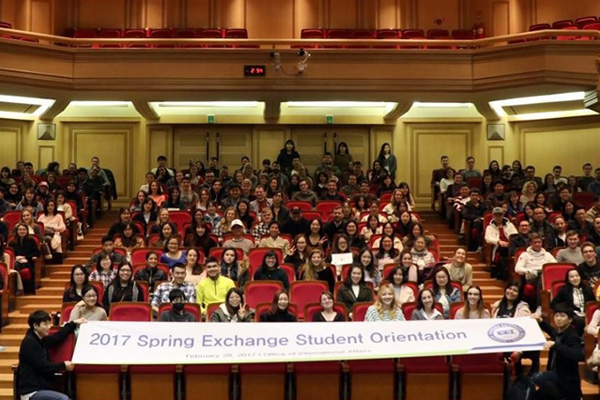
WATANABE Yuzuki
Ms. Watanabe graduated from the College of Asia Pacific Studies in 2018, and is currently in charge of overseas cosmetics sales at Kose Co., Ltd.'s Asia Division. In the future, she would like to work in product planning, too. She took a slightly unusual path by studying criminology while on exchange. She explains the thought process behind her exchange, her preparations, and her experiences on exchange below.


Trying everything APU has to offer, starting with the FIRST Program

Trying everything APU has to offer, starting with the FIRST Program
When I first came to APU, I knew I wanted to try many different things. There are many opportunities at APU, but I felt that if I missed the chance to study abroad in my first year, I wouldn't be able to seize any future opportunities. So, I joined the FIRST Program and spent five days doing field work in Korea. None of my group members, myself included, could speak Korean. Nevertheless, we had to conduct questionnaires amongst locals who could only speak Korean. Of course, we couldn’t speak fluently in Korean, but even so, by using gestures, English words, and illustrations, we learned how to communicate with people from other countries without relying solely on language, as well as the courage to work hard in any environment.
Clarifying my goals in advance through the study abroad preparation course

Clarifying my goals in advance through the study abroad preparation course
Because I was admitted to APU, I was certain I wanted to spend a year on exchange. I joined the study abroad preparation course to put myself in an environment where students like me, who were also aiming to go on exchange, could help motivate each other. Naturally, I worked on improving my English skills, and we also went to Malaysia and Singapore on a short-term overseas training program. The best thing about the study abroad preparation course was that it made me think very carefully about why I wanted to study abroad and what I wanted to study at my host university. I realized that I'd liked foreign crime shows since I was a child, and that I was interested in studying about crime from an academic standpoint. I thought carefully about why I wanted to study abroad in terms of my interests and passions, and I spent several long nights at family restaurants editing my application with the help of an upperclassman. As a result of my hard work and the help of my friends, I was accepted for the exchange program!
* Currently, we do not offer study abroad preparation courses, but we do hold events related to study abroad and provide learning support through the SALC and other on-campus resources.
My first experience of life at an overseas university in Malaysia and Singapore
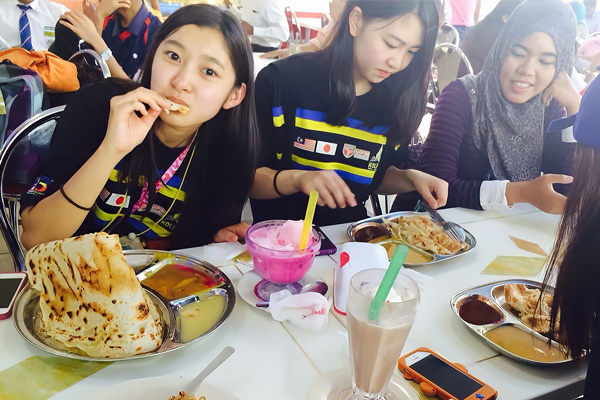
My first experience of life at an overseas university in Malaysia and Singapore
As part of the study abroad preparation course, I stayed at a university in Malaysia for two weeks and a university in Singapore for one week during summer vacation. There, I participated in international exchange events and mock classes with local students. By interacting with local students, I learned about cross-cultural communication, and I felt a little closer to my goal of going on exchange. Unlike traveling overseas on vacation, I lived in the university dormitories, so I was able to more fully experience the culture of those countries. (I still remember taking cold showers and using water instead of toilet paper in the bathrooms in Malaysia.)
Exchange to the US: finding a university that teaches criminology
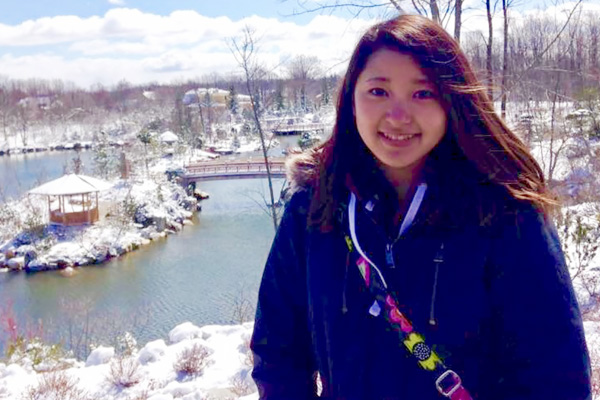
Exchange to the US: finding a university that teaches criminology
I chose Grand Valley State University in Michigan, USA as my destination. I chose Grand Valley because there were many faculty members who taught criminal justice, as well as classes taught by police, staff from juvenile detention centers, and other professionals. I was the only Japanese person among my classmates, many of whom wanted to work for the FBI or the CIA. I didn't have much background knowledge in criminal justice, so learning about this specialized field in English was hard. I started to realize that I wanted to prevent juvenile crime, and I felt that strengthening the relationships between parents and children was key to achieving that. Instead of directly dealing with these issues as a social worker, I decided that I wanted to increase the number of loving home environments and prevent juvenile crime indirectly by working for a manufacturing company that produces goods which improve people's quality of life.
Expressing my true aspirations at APU

Expressing my true aspirations at APU
Until high school, I worried about what others thought, and I was not able to openly express my true feelings. However, at APU, with all of its diversity, I learned to accept people's opinions, even if they were different from my own. I also learned to voice my own opinions without hesitation, even if I thought my opinions might be a bit different from those of the people around me. My desire to study criminal justice may have been seen as a bit unique anywhere else in Japan, but by coming to APU, I was able to honestly express this desire for the first time. APU has many different Off-campus Programs with different aims and varying lengths. When you think of something you want to do, I believe there will be a program that more or less suits your needs. If you always keep in mind what you want to do, then I think you will be able to take advantage of the opportunities when they present themselves.
Helping younger students through the study abroad preparation course and SEA
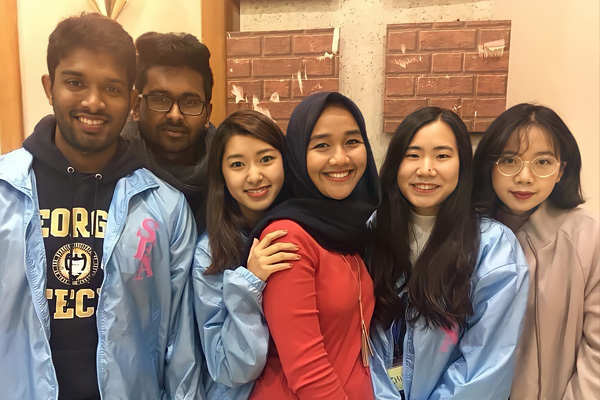
Helping younger students through the study abroad preparation course and SEA
I worked as a TA for the study abroad preparation course and as an SEA (Student Exchange Advisor) in order to help students who wanted to go on exchange, but were not sure how to go about doing so. Some first-year students thought that going abroad to study English counted as going on exchange, but the real objective of exchange is not to learn English, but rather to use your English skills to learn. You have to think about what you can learn at your host institution and how you can use that knowledge in the future. When students told me they didn’t know what they wanted to do in the future, I discussed my own experiences and helped them reflect on what they liked and what interested them. When they couldn’t do it on their own, I helped them dig down and find the future aspirations that were buried deep inside the corners of their hearts. I wanted to make APU a better place, since APU gave me the opportunity to experience so many things over my four years there. By helping underclassmen, I gave back to APU and repaid the kindness that upperclassmen had shown to me when I was a younger student.
Postgraduate studies and career
Having studied criminology while abroad, I began to want to work for a manufacturer that makes products that improve people's quality of life. I went back and forth on how to job hunt, but, in the end, I did all of my job hunting through on-campus recruiting. Companies that do on-campus recruiting really want APU students. I had a lot of experiences unique to APU, so I thought that there would be fewer mismatches if I applied to those companies. As a result, I was hired to work in the sales department at Teijin Limited, where one of the company’s internal philosophies is improving quality of life. It was the first time that a new, female graduate was assigned to a sales position at the corporate headquarters. Also, many of the employees around me had worked at the company for many years, and had studied the sciences. As a woman, a new graduate, and an international relations student, I was a very unusual hire. However, since I had experienced cross-cultural exchange through APU's Off-campus Programs and my on-campus activities, I thought of it as a new environment, and I adjusted quickly.
While working at a B-to-B manufacturer, I sometimes felt that I want to work with products more directly related to people’s lives, and that I wanted to create a world where each person could be themselves, regardless of the categories we sort people into, such as gender. Then, in the summer of my fourth year at Teijin Limited, I got a job offer from Kose Co., Ltd., a B-to-C cosmetics manufacturer. When I was in my 4th year at APU, I helped out with a Kose internship program for African students, which is what led me to take the job. The number of APU graduates at Kose increases each year. I can really see that Kose is not only focusing on expanding overseas, but also on globalizing the company itself. Currently, my focus is on the Asian region. I work with people from a local subsidiary on a daily basis, so I can utilize my experiences at APU. After working at an overseas branch someday, I would like to launch a brand that targets people overseas. By doing so, I hope to release products into the world that make use of and nurture individuality.
Message for APU students
There are a variety of opportunities at APU. If you can’t find the opportunity you’re looking for, you can even create it yourself. After graduating, I now feel that it was really valuable to be able to freely choose which opportunities I wanted to pursue. Personally, I think it's good to participate in many programs, experience a lot of things, and expand your network, but I also think that the number of programs you participate in is not the most important thing. I don’t think you should participate in a program just because it is convenient, but rather participate with purpose, and continuously reflect on what you have learned and experienced as you participate.
I mentioned above that I participated in a few programs, but I also failed the selection process for many programs that I wanted to participate in. In fact, I wasn’t selected for a couple of Off-campus Programs, I couldn’t become a Japanese language supporter, and I couldn’t participate in an overseas internship. At that time, I was very sad, and I wasn't sure why I failed, but I believed that failing would be another opportunity for growth. I thought about why I failed and sometimes went to ask the reason. By doing so, I was able to find out what my application lacked, which lead to obtaining more opportunities.
Looking back, there are so many opportunities for APU students. It's up to you to which ones you choose, so please enjoy life and make choices that will lead you into the future. I’m wishing you the best!



